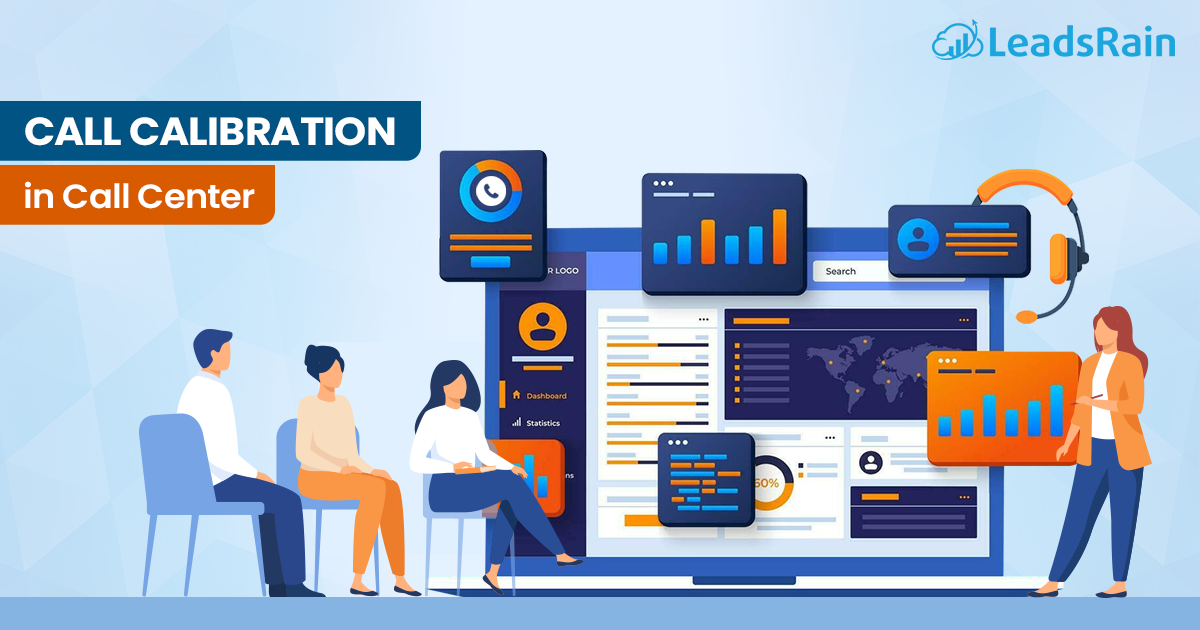Enter the world of call center operations! Today, we’ll spotlight a crucial aspect of call center performance: Call Calibration.
Let’s Visualize this: To tackle a problem, one of your clients approaches your call center. John’s impression of your entire company may be influenced by what he experienced on the call. Now consider that contact centers throughout the world are experiencing hundreds of repetitions of this situation every day.
How do businesses make sure that each interaction with their clients is constantly terrific rather than merely helpful?
That’s the reason call calibration tools hold significance in the quality management process. Understanding its essence becomes essential for maintaining quality + consistency = customer interactions. So grab a seat, and let’s browse the enigma for call calibration!
What is Call Calibration?
In a contact center, call calibration is a key component of quality assurance (QA). Call calibration is a manner of evaluating call assessment outcomes and maintaining accuracy by contact center management and third-party call tracking and evaluation partners.
The purpose is to achieve consistency when evaluating agent performance, align standards, and improve the accuracy of quality assurance metrics.
In other words, Call center agents and managers evaluate and examine customer interactions collaboratively in a process known as call calibration. Call calibration, put simply, resembles a call center team meeting when all members examine customer care calls together.
This methodology may provide managers with important information about how agents interact with consumers and where they might need more training to maintain the contact center’s constantly high-quality levels.
What are the benefits of Call Calibration?
Call calibration is crucial for consistency, accuracy, and high-quality customer service. The multitude of benefits that periodic calibration brings can eventually support the CX team’s carrying capacity.
1. Maintain Consistency
Supervisors often provide different scores for subjective evaluations like helpfulness, professionalism, and problem-solving ability when assessing their agents’ interactions. Ensuring that all agents are assessed using the same parameters promotes fairness and uniformity in performance assessment.
Accurate assessments. Call calibration can reduce discrepancies in evaluation and scoring among reviewers, resulting in more accurate evaluations of agent performance.
2. Quality improvement
As a result, service quality may be continuously improved. It offers an organized framework for identifying areas where agents, teams, as well as processes can be improved.
3. Supportive environment
Supervisors, managers, and agents operate better when calibration is implemented since it helps everyone comprehend the expectations of performance and improves the customer experience as an entire.
4. Training opportunities
Managers can identify problems swiftly and modify agents’ training to improve future performance with the use of data from calibration sessions. Agents receive in-depth industry standards training, improving their expertise and capabilities.
5. Improve Employee Productivity
Call calibration sessions generally raise the bar for consistency in assessment standards. But they also provide agents with great coaching opportunities, especially if they lack specific technical behaviors or interpersonal abilities. Call calibration sessions provide helpful, practical feedback.
Conclusion
In contact centers, call calibration is extremely important for strengthening the customer experience (CX) as it assures that all agents are communicating seamlessly and offering outstanding assistance. Take note: Call calibration is your credible ally in the hunt for ultimate perfection. So, happy calibrating!
